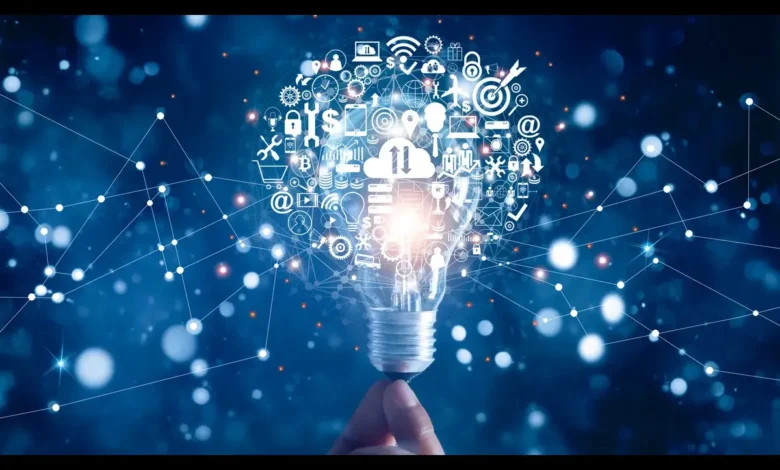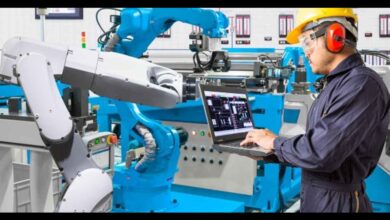Digital Tech Time: Understanding the Impact and Importance in Today’s World

Introduction
In today’s fast-paced world, digital technology plays a crucial role in almost every aspect of our lives. From communication and entertainment to education and business, digital tech time has revolutionized the way we live and work. This article will delve into the various facets of digital technology, its impact, and its importance in contemporary society.
The Evolution of Digital Technology
From Analog to Digital
The journey from analog to digital technology marks a significant milestone in human history. Analog technology, which involves the continuous transmission of data, was the foundation for early telecommunication systems. However, the advent of digital technology, characterized by discrete data representation, brought about a revolution in efficiency, accuracy, and versatility.
Key Milestones in Digital Tech Time
The evolution of digital technology is marked by several key milestones. The invention of the transistor in the late 1940s paved the way for smaller, faster, and more reliable electronic devices. The development of the internet in the late 20th century transformed global communication, making information accessible at the click of a button. More recently, advancements in artificial intelligence (AI) and machine learning have further expanded the capabilities of digital technology.
The Impact of Digital Technology on Communication
Instant Connectivity
One of the most significant impacts of digital technology is the enhancement of communication. Digital tech time has enabled instant connectivity through various platforms such as email, social media, and messaging apps. This instant communication has bridged the gap between people across the globe, fostering a more connected and collaborative world.
Social Media Revolution
Social media platforms have transformed the way we interact and share information. These platforms have become integral to our daily lives, influencing how we consume news, stay in touch with friends and family, and even how businesses market their products. The ability to share content instantly has also given rise to new forms of social activism and public discourse.
Digital Technology in Education
E-Learning and Online Courses
Digital technology has revolutionized education by making learning more accessible and flexible. E-learning platforms and online courses allow students to learn at their own pace and from anywhere in the world. This flexibility has opened up opportunities for lifelong learning and has made education more inclusive.
Interactive Learning Tools
The incorporation of digital tech time into the classroom has introduced interactive learning tools such as smartboards, virtual labs, and educational apps. These tools enhance the learning experience by making it more engaging and interactive. They also cater to different learning styles, ensuring that all students can benefit.
The Role of Digital Technology in Business
Streamlining Operations
Digital technology has streamlined business operations, making them more efficient and cost-effective. Automation tools, cloud computing, and data analytics have transformed how businesses operate, allowing for better decision-making and resource management. Digital tech time has also facilitated remote work, enabling businesses to operate seamlessly across different locations.
Digital Marketing
Digital marketing has become a cornerstone of modern business strategies. The ability to reach a global audience through digital channels such as social media, search engines, and email marketing has revolutionized how businesses market their products and services. Data-driven marketing strategies have also allowed businesses to target their audience more effectively, resulting in higher conversion rates and improved ROI.
The Influence of Digital Technology on Entertainment
Streaming Services
The advent of streaming services has transformed the entertainment industry. Platforms such as Netflix, Spotify, and YouTube have changed how we consume media, offering on-demand access to a vast array of content. This shift towards digital tech time has also disrupted traditional media industries, forcing them to adapt to new consumption patterns.
Virtual Reality and Gaming
Virtual reality (VR) and gaming are other areas where digital technology has made significant strides. VR technology provides immersive experiences, transporting users to different worlds and enhancing the gaming experience. The gaming industry, in particular, has seen tremendous growth, becoming a major player in the entertainment sector.
The Impact of Digital Technology on Healthcare
Telemedicine
Digital technology has revolutionized healthcare through telemedicine, allowing patients to consult with doctors remotely. This has made healthcare more accessible, especially for those in remote areas. Digital tech time has also enabled the monitoring of patients through wearable devices, providing real-time data to healthcare providers.
Electronic Health Records
The digitization of health records has improved the efficiency and accuracy of patient care. Electronic health records (EHRs) allow for the seamless sharing of patient information among healthcare providers, ensuring better coordination and treatment. This digital transformation has also reduced paperwork and administrative burdens in the healthcare industry.
The Future of Digital Technology
Artificial Intelligence and Machine Learning
Artificial intelligence (AI) and machine learning are poised to further revolutionize digital tech time. These technologies have the potential to automate complex tasks, enhance decision-making, and provide personalized experiences. From self-driving cars to intelligent personal assistants, the future of digital technology promises to be even more transformative.
The Internet of Things (IoT)
The Internet of Things (IoT) is another area with immense potential. IoT involves connecting everyday devices to the internet, enabling them to communicate and share data. This connectivity can lead to smarter homes, improved healthcare monitoring, and more efficient industrial processes. The integration of IoT with digital tech time will further enhance our ability to interact with and control our environment.

Conclusion
Digital tech time has become an integral part of our lives, transforming how we communicate, learn, work, and entertain ourselves. The evolution of digital technology has brought about unprecedented changes, making our world more connected and efficient. As we look to the future, advancements in AI, machine learning, and IoT promise to further enhance the capabilities of digital technology, creating new opportunities and challenges. Embracing these changes and understanding their impact will be crucial as we navigate the digital age.







